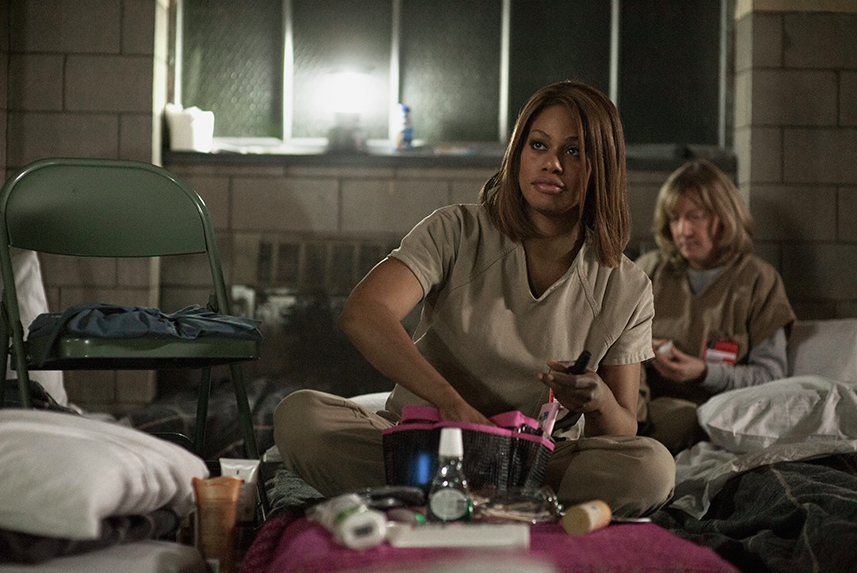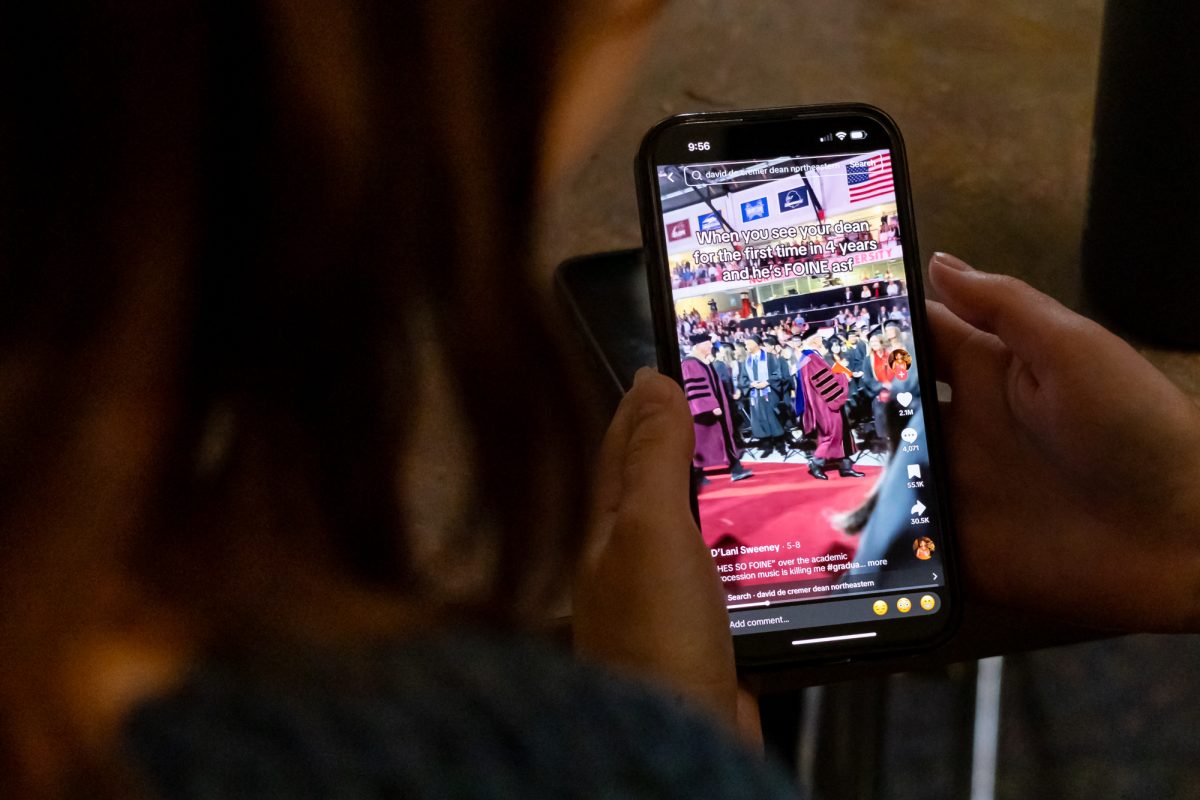By Rowena Lindsay, inside editor
“Orange Is The New Black” actress and transgender activist Laverne Cox packed Blackman Auditorium when she spoke at Northeastern on Monday, Jan. 26. NU Pride and the University Scholars Program sponsored the sold outevent.
“I stand before you a proud African American transgender woman, which is not a celebrated place in society,” Laverne Cox said.
Cox began her speech like a slam poet with dramatic pauses, killer quotes, hilarious one-liners and an inspiringly confident attitude.
After rattling off a long and grim list of statistics about the conditions under which transpeople live, she declared this a situation of emergency for transpeople which needs to be addressed.
“Justice is what love looks like in public,” Cox said, quoting author Cornel West. “Transpeople could use some justice.”
With that, she launched into a discussion of the many authors and theorists who inspired her when she was a gender nonconformist college student, including Sojourner Truth, Simone De Beauvoir and Bell Hooks.
Cox grew up in Mobile, Ala. with her single mother and twin brother. She loved to dance and was constantly bullied for being too feminine.
“They said I acted like a girl,” Cox said. “Who knows what that means because as we all know, girls act all sorts of ways.”
When she was in third grade, her teacher told her mother that if her son didn’t go to therapy he would end up in New Orleans wearing a dress. That image haunted Cox and lead her to have misconceptions about transpeople, particularly when her mother did put her in therapy.
When her therapist asked her if she knew the difference between boys and girls, she said that there was no difference. This lead her therapist to suggest hormone injections that her mother refused, but Cox wanted the hormones. She wanted to be normal.
Forty one percent of trans people have attempted suicide, according to Cox, and she is one of them.
She was afraid that her attraction to men and feeling like a woman was a sin and she was afraid of disappointing the people in her life. So, Cox took an entire bottle of pills hoping that she would not wake up.
When she did wake up the next morning, she threw herself into becoming an overachiever as a way of stifling who she was. She even became vice president of the student council in high school, a fact she was still proud of. Despite being disliked by her peers, the student body voted for her.
“All those bullies who chased me home from school had to hear me say the Pledge of Allegiance every day. Success is the best revenge. I was on the red carpet last night,” Cox said, alluding to the Screen Actors Guild Awards. “Take that, bullies.”
Cox attended the Alabama School of Fine Arts which gave her a chance to experiment with her clothing and makeup, and develop an appreciation for all forms of art. After receiving a dance and academic scholarship to Indiana University in Bloomington, Cox was able to transfer to Marymount Manhattan College in N.Y.
“For me N.Y. City represented a place for ultimate possibility for me as a performer and person,” Cox said.
New York also gave her the chance to meet other transgender people who changed her misconceptions about transitioning and helped her overcome her fear of ending up in New Orleans wearing a dress.
While New York represented freedom, it also represented a new kind of harassment. As she transitioned, she experienced harassment from strangers on the street. People would call her a man and one even chased her down the street to kick her. In her case, the police were cooperative, but many transpeople are not so lucky.
“Calling a transwoman a man is an act of violence,” Cox said. “It makes me feel scared. I still have PTSD from that incident of being kicked.”
A theme that Cox returned to frequently throughout her talk was shame – both her own shame about being transgender and how people suffering from shame can overcome its crippling effects.
“Shame is resilient and empathy is the anecdote,” Cox said. “Shame hates to be spoken.”
For an actress, she spoke surprisingly little about her craft. As an activist, she believed that it was important to tell transgender stories, but, as an actress, she wished that she were not limited to transgender roles.
“There is social progress and there is art, and they aren’t always the same for me,” Cox said.
At the end of her talk the crowd gave her a unanimous standing ovation.
“One thing I really liked was that she wasn’t afraid to call people out for the messed up things in the world,” sophomore English major Sebastian Alberdi said. “She wasn’t trying to be an inspiration, she was telling us how it was and what we had to do to change the discrimination towards transpeople and gender fluid people.”
During the question and answer session, she talked about a variety of topics from her feelings on trans speech therapy and puberty blocking drugs, to her stint on VH1’s “I Want To Work For Diddy.” She also gave advice on steps that Northeastern could take to improve transgender resources on campus.
Her final words of advice: “Create a safe space to have a conversation so you can know what to say to people who are different than you,” Cox said. “Get to a place when you have a better understanding of who they are and who you are.”
She exited the stage with a curtsy, accompanied by a roaring applause and a second standing ovation.
Photo courtesy Lionsgate Media















